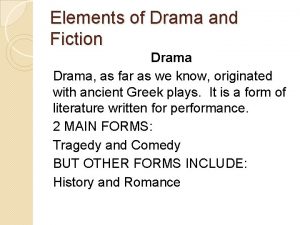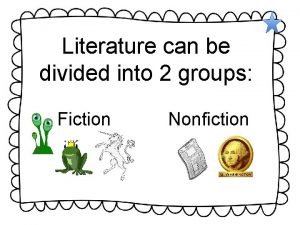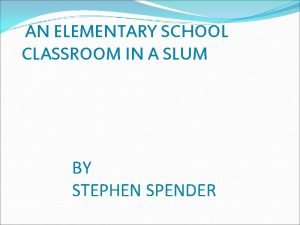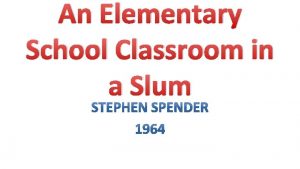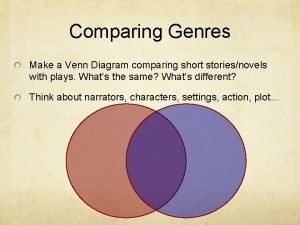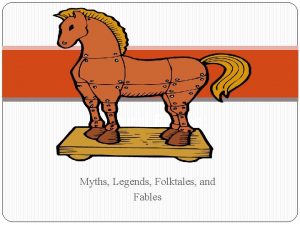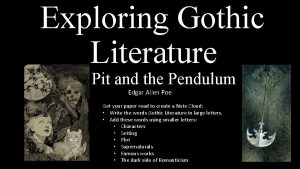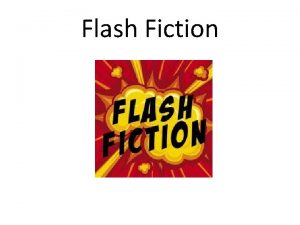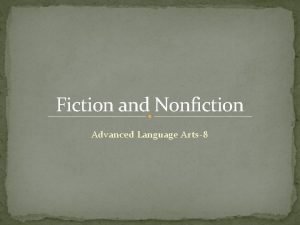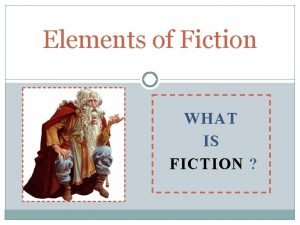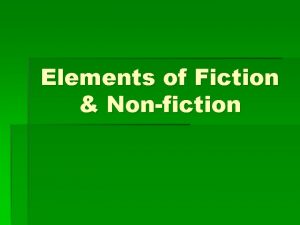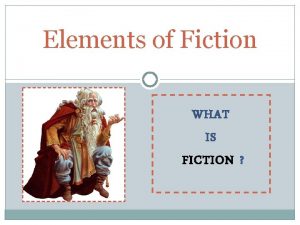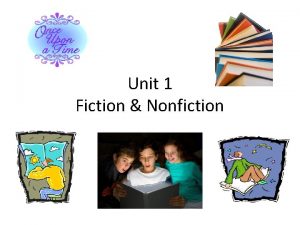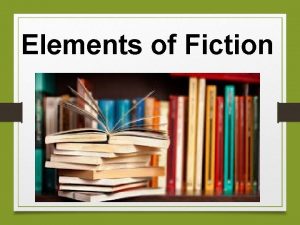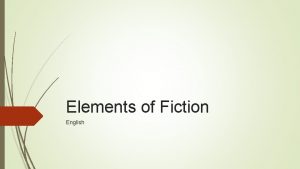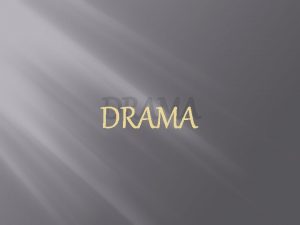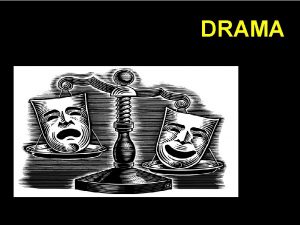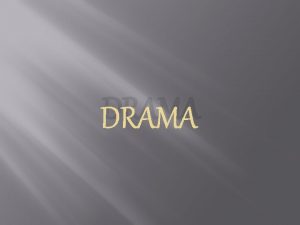Elements of Drama and Fiction Drama as far













- Slides: 13

Elements of Drama and Fiction Drama, as far as we know, originated with ancient Greek plays. It is a form of literature written for performance. 2 MAIN FORMS: Tragedy and Comedy BUT OTHER FORMS INCLUDE: History and Romance

Comedy is a story that ends happily. It usually involves common people (rather than the kings and other royalty you might see in a tragedy) and often has humorous scenes and situations. It is important to remember, however, that comedy does not always mean “funny. ” In fact, comedies often deal with very serious subjects, viewed through a brighter lens, and though humor usually plays a large part, the story can involve serious and or sad situations.

Tragedy A story that ends sadly and often with the demise of the main character. Tragedy, though serious in nature, does not necessarily mean that every aspect of the play will be serious.

Act An act is a division of a play much like a chapter is a division within a novel.

Scene A scene is a further division within an act.

Dialogue A dialogue is a conversation between two or more characters.

Monologue A monologue is a speech given by one character to another or by a character to the audience.

Soliloquy In a soliloquy, a character voices his thoughts out loud when he or she is alone or when they think that they are alone. This helps the audience to know what is going on in the character’s mind.

Aside Words spoken by a character directly to the audience, usually to help give the audience further information.

Dramatic Irony Dramatic irony is a situation in the story in which the audience knows something that the characters do not.

Foil A foil is a character who is almost exactly the opposite of another character, used to make a comparison.

Double Entendre A double entendre is a word or phrase with more than one meaning. For example, in the title of the short story “The Most Dangerous Game, ” by Richard Connell, the word game may refer to the prey being hunted or it may refer to the act of playing.

Pun A play on words, especially those that sound alike, but have different meanings. For example, in A Midsummer Night’s Dream, Bottom says odious when he means odorous, a mistake that adds to the ridiculousness of his character.
 Elements of non fiction
Elements of non fiction Drama microfiction
Drama microfiction Historical story
Historical story Wear skins peeped through by bones figure of speech
Wear skins peeped through by bones figure of speech This map becomes their window
This map becomes their window In a kingdom far far away
In a kingdom far far away Far far away city
Far far away city It is a genre of speculative fiction dealing
It is a genre of speculative fiction dealing Contemporary realistic fiction vs historical fiction
Contemporary realistic fiction vs historical fiction Short story and drama venn diagram
Short story and drama venn diagram Elements of science fiction and myths legends folktales
Elements of science fiction and myths legends folktales The pit and the pendulum plot diagram
The pit and the pendulum plot diagram What is flash fiction
What is flash fiction The baker heater league
The baker heater league

